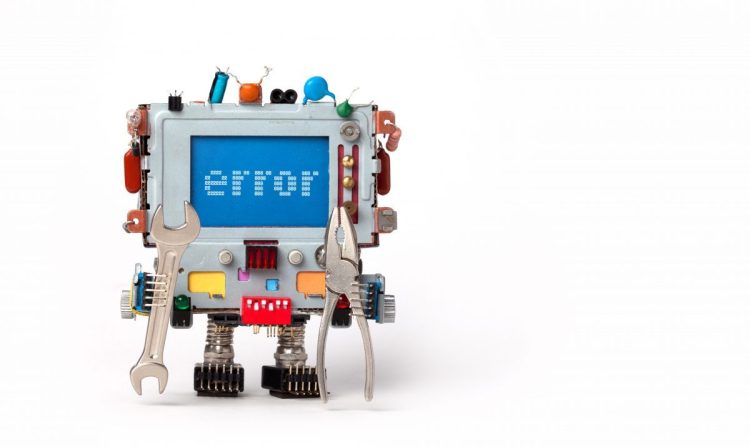Watch all the Transform 2020 sessions on-demand here.
AI is the hot technology on every executive’s lips and in every business roadmap. From startups to Fortune 500s, businesses of all sizes are throwing millions at AI initiatives that are, for the most part, doomed to fail.
But look, it’s not AI’s fault. Most AI failures aren’t AI problems, they’re people and process problems. Broadly, “AI fails” fall into a few categories: failure to launch, failure to navigate, and failure to sustain.
You can save your company millions of dollars and years of effort by taking note of the following nine signs of impending failure to avert an AI crisis before it hits.
1. You’re lacking team buy-in
A successful AI project needs buy-in at all levels — having a gung-ho management team isn’t enough. If the people working on your project are uninvolved, aren’t enthusiastic supporters or, worse, expect it to fail, your project will suffer for it. It may not be explicit sabotage, but internal resistance can circumscribe the success of your project from day one. Additionally, a passion project championed by one person risks failing if that person moves on or leaves the company.
June 5th: The AI Audit in NYC
Join us next week in NYC to engage with top executive leaders, delving into strategies for auditing AI models to ensure fairness, optimal performance, and ethical compliance across diverse organizations. Secure your attendance for this exclusive invite-only event.
An AI project needs widespread support, oversight from multiple people, and a clear succession plan that makes it easy for someone else to pick up where someone has left off. This same issue is top-of-mind for VCs looking to invest in AI startups.
2. Your expectations are too high
A successful project takes time, resources, and plenty of data. Expecting human-level accuracy right off the bat or demanding instantaneous results will get “fail” stamped on your project pretty quickly. Expectations can also go awry around cost. Your team — and management — needs to understand and be able to communicate budgets and reasonable expectations for ROI.
3. Your expectations are misguided
Expectation management is one of the toughest issues facing AI. AI is a technology, not a panacea for the world’s ills. Consider whether your project is right for AI, whether there’s enough data available, and whether you have a clearly defined goal. You could ask your AI to write the great American screenplay, but is that really the best use for it?
4. You fail to measure
AI isn’t a “set it and forget it” phenomenon. Even the brightest students need guidance or their conceptual errors can compound over time. (Take Google’s Allo AI messaging app and its offensive reply suggestions, for example). Failing to measure your AI’s results as you go means you won’t pick up any issues until they’re long-established — and expensive and time-consuming to address. The proverbial stitch in time can save an AI project.
5. You neglect maintenance duties
Your AI might start out running as intended, but things change. Perhaps a machine goes down, software or hardware advances emerge, or there’s a shift in the type of data you feed your AI. If you don’t have a plan for keeping your project abreast of these changes, it’s easy to end up with the AI equivalent of a brick phone — functional but irrelevant.
6. Your project lacks flexibility
If your problem is dynamic and changing, your AI needs to take that into account. It needs to be able to absorb different data systems that are liable to change, along with new versions and new systems. An inflexible project can glue itself to the current state of the world, becoming frozen in time rather than evolving alongside it.
7. It was doomed from the beginning
Some AI projects just never get off the ground. The problem may be too difficult, or the resources and buy-in may be lacking. Others take a slightly different route: They have some initial success but haven’t been set up for continued success in the face of growth, new understandings, or staff turnover.
8. You started too big
Everyone wants to cure cancer, but a goal this big should never be your starting point. Beginning with a huge, complex system with no definable success marker is an expensive way to get nowhere. It’s much better to start small and aim to hit measurable milestones with accuracy along the way. Even Microsoft’s Healthcare Next, which actually does plan to cure cancer, is building up to it.
9. The project isn’t tied to your business
If you don’t have a process for implementing the outcomes of your AI project into your business, you can consider the project a failure. Your AI might generate a helpful churn report indicating when customers may leave, for example. But if you don’t have a process in place to actually contact these customers, your AI is really just an expensive tech demo.
So beyond the converse of these, what are the signs that your AI project won’t fail? Basically, it’s a matter of sustaining impact. If your project is showing good results that are improving over time, are going in the right direction, and are delivering value, you’re on the right track.
Paul Barba is the chief scientist of Lexalytics, where he is focused on applying technologies to solve artificial intelligence-related challenges and drive innovation in AI even further.


